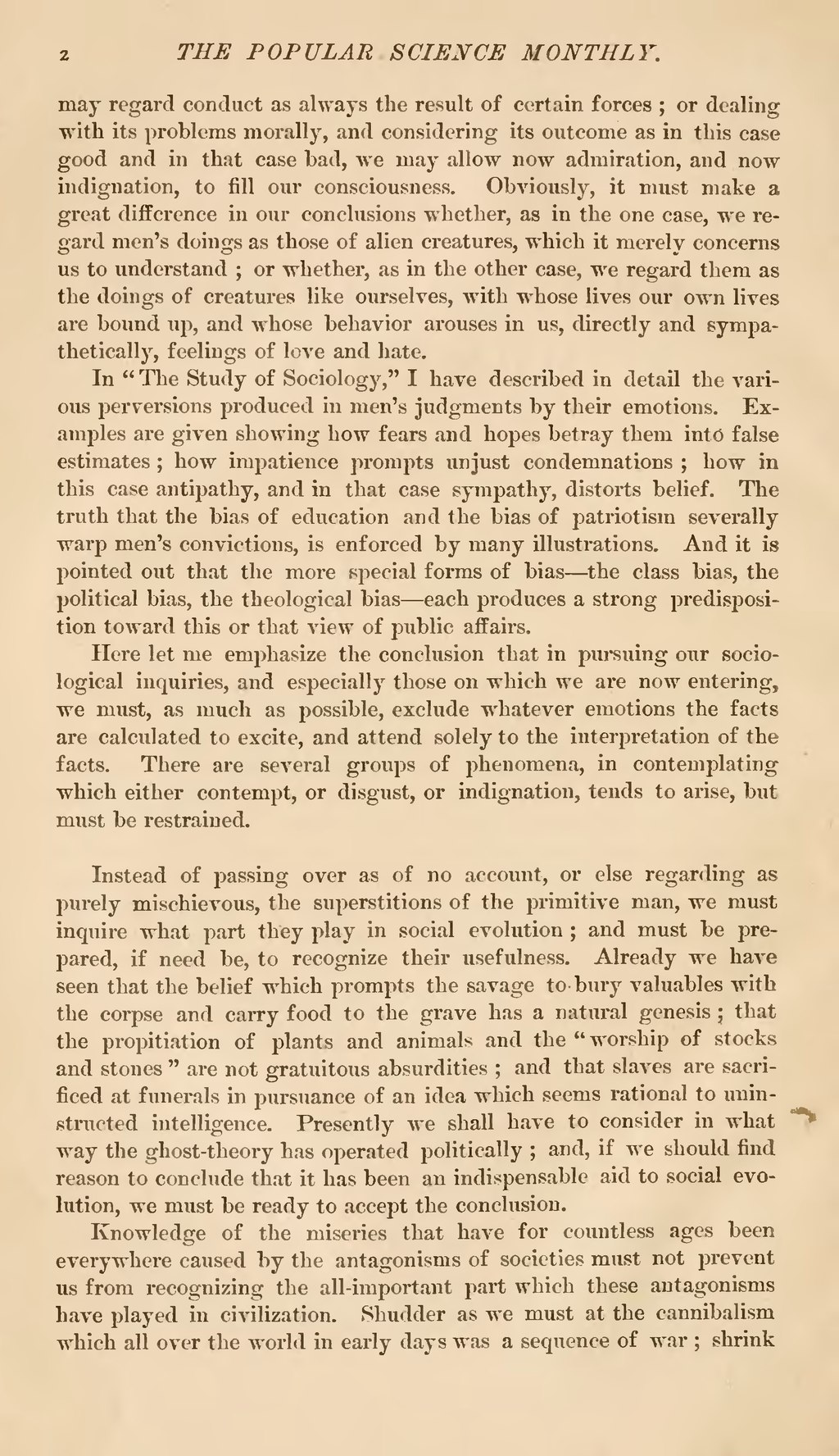may regard conduct as always the result of certain forces; or dealing with its problems morally, and considering its outcome as in this case good and in that case bad, we may allow now admiration, and now indignation, to fill our consciousness. Obviously, it must make a great difference in our conclusions whether, as in the one case, we regard men's doings as those of alien creatures, which it merely concerns us to understand; or whether, as in the other case, we regard them as the doings of creatures like ourselves, with whose lives our own lives are bound up, and whose behavior arouses in us, directly and sympathetically, feelings of love and hate.
In "The Study of Sociology," I have described in detail the various perversions produced in men's judgments by their emotions. Examples are given showing how fears and hopes betray them into false estimates; how impatience prompts unjust condemnations; how in this case antipathy, and in that case sympathy, distorts belief. The truth that the bias of education and the bias of patriotism severally warp men's convictions, is enforced by many illustrations. And it is pointed out that the more special forms of bias—the class bias, the political bias, the theological bias—each produces a strong predisposition toward this or that view of public affairs.
Here let me emphasize the conclusion that in pursuing our sociological inquiries, and especially those on which we are now entering, we must, as much as possible, exclude whatever emotions the facts are calculated to excite, and attend solely to the interpretation of the facts. There are several groups of phenomena, in contemplating which either contempt, or disgust, or indignation, tends to arise, but must be restrained.
Instead of passing over as of no account, or else regarding as purely mischievous, the superstitions of the primitive man, we must inquire what part they play in social evolution; and must be prepared, if need be, to recognize their usefulness. Already we have seen that the belief which prompts the savage to bury valuables with the corpse and carry food to the grave has a natural genesis; that the propitiation of plants and animals and the "worship of stocks and stones" are not gratuitous absurdities; and that slaves are sacrificed at funerals in pursuance of an idea which seems rational to uninstructed intelligence. Presently we shall have to consider in what way the ghost-theory has operated politically; and, if we should find reason to conclude that it has been an indispensable aid to social evolution, we must be ready to accept the conclusion.
Knowledge of the miseries that have for countless ages been everywhere caused by the antagonisms of societies must not prevent us from recognizing the all-important part which these antagonisms have played in civilization. Shudder as we must at the cannibalism which all over the world in early days was a sequence of war; shrink

